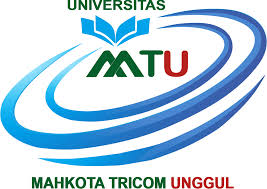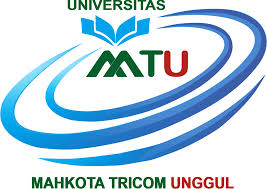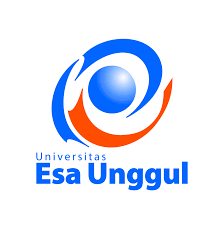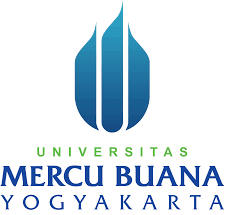Learning Strategies in the Digital Era: Innovative Approaches for Elementary Schools
DOI:
https://doi.org/10.55927/nurture.v3i3.12768Keywords:
Learning Strategies, Elementary Schools, Digital EraAbstract
The development of technology and information has influenced various aspects of human life, including education. With these changes, the education sector requires adjustments in learning strategies to align with the advancements in digital information technology. This study aims to identify suitable learning strategies for elementary schools in the digital era. It employs a qualitative research approach using a literature review method. Data were collected through an analysis of various sources, such as journals and books, and analyzed using Miles and Huberman's data analysis technique, which consists of three stages: data condensation, data presentation, and conclusion drawing. Several learning strategies can be implemented by elementary school teachers in the digital era, including the development of learning models, evaluation techniques, and learning media that leverage technology. The use of technology-based models, evaluation tools, and media is expected to facilitate students in achieving their learning objectives.
Downloads
References
Ahmed, S., Taqi, H. M. M., Farabi, Y. I., Sarker, M., Ali, S. M., & Sankaranarayanan, B. (2021). Evaluation of Flexible Strategies to Manage the COVID-19 Pandemic in the Education Sector. Global Journal of Flexible Systems Management, 22(s2), 81–105. https://doi.org/https://doi.org/10.1007/s40171-021-00267-9
Astiwi, W., & Siswanto, D. H. (2024). Pengembangan e-LKPD pada Materi Relasi dan Fungsi dengan Model PAKEM untuk Meningkatkan Kemampuan Berpikir Kreatif. Jurnal Praktik Baik Pembelajaran Sekolah Dan Pesantren, 3(03), 118–132. https://doi.org/https://doi.org/10.56741/pbpsp.v3i03.684
Astiwi, W., Siswanto, D. H., & Suryatama, H. (2024). Description Regarding the Influence of Teacher Qualifications and Competence on Early Childhood Learning Achievement. Asian Journal of Applied Education (AJAE), 3(3), 347–358. https://doi.org/https://doi.org/10.55927/ajae.v3i3.10360
Aulia, B. W., Rizki, M., Prindiyana, P., & surgana. (2023). Peran Krusial Jaringan Komputer dan Basis Data dalam Era Digital. JUSTINFO (Jurnal Sistem Informasi Dan Teknologi Informasi), 1(1), 9–20. https://doi.org/10.33197/justinfo.vol1.iss1.2023.1253
Bang, M., Faber, L., Gurneau, J., Marin, A., & Soto, C. (2016). Community-Based Design Research: Learning Across Generations and Strategic Transformations of Institutional Relations Toward Axiological Innovations. Mind, Culture, and Activity, 23(1), 28–41. https://doi.org/https://doi.org/10.1080/10749039.2015.1087572
Bhegawati, D. A. S., & Novarini, N. N. A. (2023). Percepatan Inklusi Keuangan untuk Meningkatkan Pertumbuhan Ekonomi, Lebih Terinklusif, dan Merata Di Era Presidensi G20. Jurnal Akuntansi, Manajemen, Bisnis Dan Teknologi (AMBITEK), 3(1), 14–31. https://doi.org/10.56870/ambitek.v3i1.60
Borup, J., Graham, C. R., West, R. E., Archambault, L., & Spring, K. J. (2020). Academic Communities of Engagement: an expansive lens for examining support structures in blended and online learning. Educational Technology Research and Development, 68(2), 807–832. https://doi.org/https://doi.org/10.1007/s11423-020-09744-x
Derya, Z., Menekşe, T. B., & Seden. (2023). An Investigation on the Mathematics Teaching Programs for Gifted Students Based on Teachers’ Opinions. Journal for the Education of Gifted Young Scientists, 11(3), 467–485. https://doi.org/https://doi.org/10.17478/jegys.1336705
Dung, T. M., Trung, L. T. B. T., Nguyen, T. T., & Tong, D. H. (2023). The Effectiveness of Teaching Derivatives in Vietnamese High Schools Using APOS Theory and ACE Learning Cycle. European Journal of Educational Research, 12(1), 507–523. https://doi.org/https://doi.org/10.12973/eu-jer.12.1.507
Erbil, D. G. (2020). A Review of Flipped Classroom and Cooperative Learning Method Within the Context of Vygotsky Theory. Frontiers in Psychology, 11(June), 1–9. https://doi.org/10.3389/fpsyg.2020.01157
Gono, S., & de Moraes, A. J. (2023). Student appraisals of collaborative team teaching: A quest for student engagement. Journal of Applied Learning and Teaching, 6(1), 222–233. https://doi.org/https://doi.org/10.3390/math1003039810.37074/jalt.2023.6.1.26
Hamidah, A., Ayunasari, D. S., & Sanjaya, E. (2023). Development of E-LKPD in Motion System Materials for High School Class Using PageFlip 3D Software. Jurnal Penelitian Pendidikan IPA, 9(3), 1233–1241. https://doi.org/https://doi.org/10.29303/jppipa.v9i3.3396
Haq, H., & Wakidi. (2024). Evaluation of the Implementation of the Merdeka Belajar Curriculum in Secondary Schools in the Digital Era. International Journal of Post Axial: Futuristic Teaching and Learning, 2(4), 215–228. https://journal.amorfati.id/index.php/postaxial
Hasan, H., Hafidz, & Nashihin, H. (2023). Efektivitas Pemanfaatan Media E-Learning dalam Pembelajaran Fiqih Kelas VIII di SMP IT Nur Hidayah Surakarta. Attractive : Innovative Education Journal, 5(2), 506–513. https://www.attractivejournal.com/index.php/aj/
Hikamah, S. R., Suhadi, Rohman, F., & Kurniawan, N. (2021). Developing virtual communication skills in online learning based on modified PBL during the COVID-19 pandemic. International Journal of Education and Practice, 9(2), 323–339. https://doi.org/https://doi.org/10.18488/journal.61.2021.92.323.339
Indraprasta, S. P., & Pawiro, M. A. (2023). Implementation of the Independent Curriculum to Improve the Quality of Learning English. Indonesian Journal of Educational Research and Review, 6(3), 674–688. https://doi.org/https://doi.org/10.23887/ijerr.v6i3.67645
Kania, N., Fitriani, C., & Bonyah, E. (2023). Analysis of Students’ Critical Thinking Skills Based on Prior Knowledge Mathematics. International Journal of Contemporary Studies in Education (IJ-CSE), 2(1), 49–58. https://doi.org/https://doi.org/10.30880/ijcse.v2i1.248
Kurniawan, A. N. R., Sistiyani, & Qolbi, Z. F. (2024). Efficient learning strategies: Student attraction to entrepreneurship lessons using technology. Curricula: Journal of Curriculum Development, 3(1), 125–142. https://doi.org/https://doi.org/10.17509/curricula.v3i1
Lestari, A., Permana, D., Musdi, E., & Arnawa, I. M. (2021). The development of mathematics learning tools based on number heads together model to improve mathematical problem-solving skills of grade vii junior high school students. Journal of Physics: Conference Series, 1742(1). https://doi.org/https://doi.org/10.1088/1742-6596/1742/1/012027
Ng, D. T. K., Leung, J. K. L., Su, J., Ng, R. C. W., & Chu, S. K. W. (2023). Teachers’ AI digital competencies and twenty-first century skills in the post-pandemic world. Educational Technology Research and Development, 71(1), 137–161. https://doi.org/https://doi.org/10.1007/s11423-023-10203-6
Njonge, T. (2023). Influence of Psychological Well-Being and School Factors on Delinquency , During the Covid-19 Period Among Secondary School Students in Selected Schools in Nakuru County : Kenya. IJRISS: International Journal of Research and Innovation in Social Science, VII(X), 1175–1189.
Pimdee, P., Sukkamart, A., Nantha, C., Kantathanawat, T., & Leekitchwatana, P. (2024). Enhancing Thai student-teacher problem-solving skills and academic achievement through a blended problem-based learning approach in online flipped classrooms. Heliyon, 10(7), e29172. https://doi.org/https://doi.org/10.1016/j.heliyon.2024.e29172
Pisriwati, S. A., Hardi, Y., & Siswanto, D. H. (2024). Enhancing Organizational Development through Principal Leadership to Improve Teacher and Staff Work Discipline. Journal of Organizational and Human Resource Development Strategies, 1(1), 52–62. https://doi.org/https://doi.org/10.56741/ohds.v1i01.670
Pisriwati, S. A., Siswanto, D. H., Hardi, Y., & Alghiffari, E. K. (2024). Question Making Training with LOTS , MOTS , and HOTS Cognitive Levels for High School Teachers. Journal of Social and Community Development, 1(1), 9–19. https://doi.org/10.56741/jscd.v1i01.666
Pramana, K. T. Y., Renda, N. T., & Jayanta, I. N. L. (2022). E-LKPD Berbasis HOTS dengan Liveworksheet Materi Sistem Pernafasan Manusia. Jurnal Pedagogi Dan Pembelajaran, 5(3), 412–420. https://doi.org/https://doi.org/10.23887/jp2.v5i3.52795
Putri, H. A., Hardi, Y., Alghiffari, E. K., & Siswanto, D. H. (2024). Penerapan Teknik Mindfulness dalam Proses Pembelajaran di Sekolah Menengah Atas. Jurnal Praktik Baik Pembelajaran Sekolah Dan Pesantren, 3(03), 152–162. https://doi.org/https://doi.org/10.56741/pbpsp.v3i03.733
Putri, H. A., & Siswanto, D. H. (2024). Teaching at The Right Level (TaRL) as an Implementation of New Education Concepts in the Insights of Ki Hajar Dewantara. Indonesian Journal of Educational Science and Technology (Nurture), 3(2), 89–100. https://doi.org/https://doi.org/10.55927/nurture.v3i2.9297
Putri, H. A., Siswanto, D. H., & Susanto, D. (2024). Developing Teachers’ Skills in Designing Project-Based Learning in the Merdeka Curriculum through Assembler Edu Training. Civitas: Jurnal Pengabdian Masyarakat, 1(1), 12–20. https://journal.idscipub.com/civitas/article/view/334
Sarman, A. A., Suastika, I. K., & Murniasih, T. R. (2023). Pengembangan E-LKPD untuk Meningkatkan Kemampuan Pemecahan Masalah Matematis Peserta Didik pada Materi Bangun Ruang Sisi Lengkung. Jurnal Tadris Matematika, 6(1), 49–66. https://doi.org/https://doi.org/10.21274/jtm.2023.6.1.49-66
Shamsuddin, F., & Abdul Razak, A. Z. (2023). Development of a Model for Data-Driven Decision Making: Critical Skills for School Leaders. Malaysian Journal of Social Sciences and Humanities (MJSSH), 8(12), e002614. https://doi.org/https://doi.org/10.47405/mjssh.v8i12.2614
Siswanto, D. H., & Afandi, M. M. (2024). Analysis of the Implementation of Mindfulness in Senior High School Students’ Learning. Asian Pendidikan, 4(1), 79–85. https://doi.org/https://doi.org/10.53797/aspen.v4i1.9.2024 Analysis
Siswanto, D. H., Alghiffari, E. K., & Andriyani. (2024). Development of Creative Thinking Evaluation Tool Utilizing Microsoft Sway Application in the Context of Pythagorean Theorem Material. Al Khawarizmi, 8(1), 33–48. https://doi.org/10.22373/jppm.v8i1.23059
Siswanto, D. H., & Firmansyah, A. B. P. D. A. (2024). Korelasi Budaya Sekolah Dan Kepimpinan Pengetua Sekolah Dengan Prestasi Guru Di Sekolah Menengah Atas Muhammadiyah Mlati. Jurnal Kepimpinan Pendidikan, 11(3), 49–58. http://umrefjournal.um.edu.my/filebank/published_article/6255/Template 4.pdf
Siswanto, D. H., & Susetyawati, M. M. E. (2024). Comparison of the Effectiveness of Cooperative Learning Models TPS and GI on Students’ Mathematical Concept Understanding Ability. International Journal of Scientific Multidisciplinary Research (IJSMR), 2(7), 875–888. https://doi.org/https://doi.org/10.55927/ijsmr.v2i7.10034
Sobaih, A. E. E., Salem, A. E., Hasanein, A. M., & Abu Elnasr, A. E. (2021). Responses to covid-19 in higher education: Students’ learning experience using microsoft teams versus social network sites. Sustainability (Switzerland), 13(18), 1–12. https://doi.org/https://doi.org/10.3390/su131810036
Syah, A. B. P. D. A. F., Rachmawati, L., & Siswanto, D. H. (2024). Validity and Practicality of the Game-Based Learning Media for Mathematical Logic Using the Quiz whizzer Application. JOELI: Journal of Educational and Learning Innovation, 1(2), 107–118. https://doi.org/http://doi.org/10.72204/xpxg2d74
Syah, A. B. P. D. A. F., Suwarta, & Siswanto, D. H. (2024). Enhancing Teacher Self-Management and Skills in Designing Teaching Materials through a Merdeka Curriculum Workshop at Muhammadiyah 1 Sleman Vocational High School. Jurnal Pengabdian Masyarakat Bestari (JPMB), 3(9), 585–598. https://doi.org/https://doi.org/10.55927/jpmb.v3i9.11587
Tang, F. (2024). Understanding the role of digital immersive technology in educating the students of english language: does it promote critical thinking and self-directed learning for achieving sustainability in education with the help of teamwork? BMC Psychology, 12(1), 1–14. https://doi.org/10.1186/s40359-024-01636-6
Tarso, Fitriana, E., & Siswanto, D. H. (2024). Keefektifan Fitur-Fitur pada Aplikasi Telegram sebagai Media Pembelajaran Matematika Siswa Sekolah Menengah Kejuruan. Papanda Journal of Mathematics and Sciences Research (PJMSR), 3(2), 99–109. https://ejournal.papanda.org/index.php/pjmsr/article/view/958
Wulan, W., Palennari, M., & Sundariati. (2023). Implementasi Pembelajaran Berdiferensiasi dengan Menggunakan Media Wordwall pada Pembelajaran Biologi Kelas X. Jurnal Pemikiran Dan Pengembangan Pembelajaran Implementasi, 5(20), 473–478.
Yogyanto, N., Pisriwati, S. A., & Siswanto, D. H. (2024). Education on the Contextual Utilization of Information Technology Based on the IoT in the Daily Lives of Senior High School Students Nurcahyo. Civitas : Jurnal Pengabdian Masyarakat, 1(1), 21–27. https://journal.idscipub.com/civitas/article/view/335
Ziatdinov, R., & Valles, J. R. (2022). Synthesis of Modeling, Visualization, and Programming in GeoGebra as an Effective Approach for Teaching and Learning STEM Topics. Mathematics, 10(3). https://doi.org/https://doi.org/10.3390/math1003039810.3390/math10030398
Downloads
Published
How to Cite
Issue
Section
License
Copyright (c) 2024 Akhmad Hanama, Dian Hidayati

This work is licensed under a Creative Commons Attribution 4.0 International License.




















